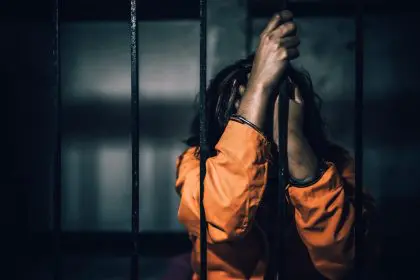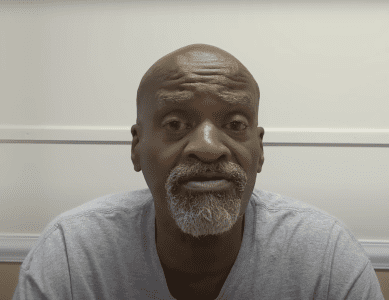
The case of Tavon White and the Black Guerrilla Family shed light on the corruption that can take place in prison systems across the nation. During his stint in the Baltimore County Jail, White controlled the prison by having sex with female guards who allowed him and his crew to sell drugs inside the jail. He testified that he made up to $20,000 per month while behind bars.
White also impregnated four of the prison guards, and several other inmates were also receiving sexual favors from jail employees.
In February, White was sentenced to 12 years in prison and got a reduction in his 20-year sentence for testifying against 39 others who were convicted.
We recently spoke with Assistant United States Attorney Robert Harding, who provided insight on how the case unfolded.
What were your initial thoughts about the case?
Gangs like Black Guerrilla Family and Dead Man Incorporated started out as prison gangs and in the last decade or so have spilled out into the streets. We decided to take the battles inside the prisons because we knew that without corrupt correctional officers, it would be impossible for gang members inside the prison to coordinate activities with gang members outside the prisons. The correctional officers smuggle the cellphones into the prison and they also smuggle things like Green Dot cards that allow inmates to conduct financial transactions from within the prison. We decided to attack the prison gangs by attacking the corrupt prison officers. Two of the leaders of the Black Guerilla Family, Tavon White and Joseph Young, phones were tapped and we put together a pretty comprehensive case against 44 people. We ultimately indicted 27 correctional officers who worked in the prison and 40 of the 44 were convicted.
What happened to the four female correctional guards who were impregnated by Tavon White?
All four of those correctional officers were in the indictment and all were convicted. They were among the 27 correctional officers who were convicted and all four of them pleaded guilty before trial. They are serving their sentences now. Katera Stevenson, Chanie Brooks, Jennifer Owens, Tiffany Linder are their names. They were interested in having a powerful boyfriend inside the prison. Some of them had relationships with other prisoners before Tavon White. Of course, Tavon White was not the only BGF leader who was able to win the affection of some of the female correctional officers. The inmates made their job easier and it gave them a way to make money. These correctional officers were not only involved in romantic relationships with Tavon White, they were all also involved in smuggling contraband. We prosecuted some other correctional officers in the case who had relationships with other BGF leaders. For example, Taryn Kirkland had a sexual relationship with a BGF leader named Steven Loney who was also indicted. By having correctional officers as romantic partners, it gave them a way to satisfy their sexual desires, and a way to smuggle contraband into the prison. This made the inmates even more powerful because they literally had control over many of the correctional officers. So, this is why people say BGF took over the prison, they were able to tell the correctional officers what to do.
Where does the BGF Family stand today in Baltimore?
They’re still the No. 1 criminal gang problem in the city of Baltimore. They operate drug shops called Regimes or Bubbles. These are just individual units who function as drug shops in their various neighborhoods around the city. Of course, no one interferes with them because the Black Guerrilla Family is very feared and a very violent organization. BGF is a big problem on the streets of Baltimore and they also are probably one of the most important prison gangs still in Maryland and across the United States. There are also other gangs such as the Bloods, the Crips, and DMI. Dead Man Incorporated is a very powerful White prison gang.
Do you guys do anything to help the young kids coming up not get enticed by some of the activity occurring in Maryland?
We have grant money that we administer to support programs like Project Safe Neighborhood which tries to restore communities that have been devastated by crimes. After we go in and take down a criminal organization, we try to provide the resources and the counseling and other resources that will permit the community to stay free of another gangs coming back and just taking the place of the old one. So we do some of that kind of activities, but our primary responsibility is to prosecute people who commit federal crimes and that’s what takes up 98% of our time.














